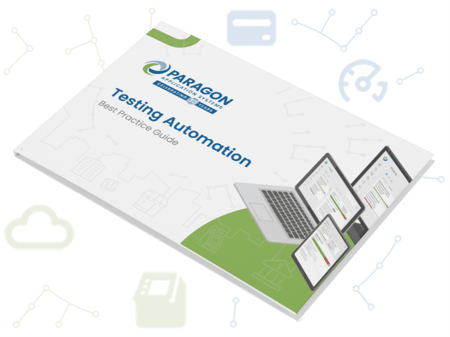As we saw from our recent post on the CrowdStrike outage, What the Payments Industry Should Learn From the CrowdStrike Outage, businesses of all sizes have become increasingly interconnected and interdependent on technology and each other.
This reliance has made them not only vulnerable to system-wide outages, but to increasingly sophisticated cyberattacks as well. In fact, the cyber-criminals used the CrowdStrike outage to launch a variety of attacks against impacted companies, as they struggled to recover from the incident.
So in addition to worrying about keeping their systems up and running, virtually every business - especially those involved with financial services, retail, and eCommerce - needs to take aggressive steps to protect itself from cyberattacks.
According to a recent PYMNTS Intelligence report, 82% of large merchants reported data and cyber breaches over the past year. The report also found that nearly half of eCommerce businesses reported losses in revenue and customer churn as a direct consequence of such security incidents.
Given that they hold significant reserves of cash, as well as sensitive account holder data, banks, credit unions, and other financial services companies are also prime targets for and are particularly vulnerable to cyber threats.
The International Monetary Fund (IMF) warns that a severe cyberattack on a major financial institution would erode consumer confidence in the entire financial system, with potentially catastrophic results. Similar to concerns raised in the wake of the CrowdStrike incident, the IMF report warns of the increasing reliance of financial firms on third-party IT service providers, which further exposes the industry to system risk.
So how can businesses in the payments industry protect themselves? In this blog, we’ll explore some key tips along with the importance of testing automation.
The Cost of Downtime
Whether downtime is caused by an IT outage or a cyberattack, it will be expensive and could be catastrophic (as evidenced by Delta’s CrowdStrike experience).
A recent Forbes essay states: “Few things are more expensive than downtime. According to industry research, the average cost of downtime has inched as high as $9,000 per minute for large organizations. For higher-risk enterprises like finance and healthcare, downtime can eclipse $5 million an hour in certain scenarios—and that’s not including any potential fines or penalties.”
There is simply no avoiding the fact that every outage is going to be painful and expensive, and a major outage is going to be really painful and really expensive. For a financial institution, any service interruption means lost business, diminished customer trust, reduced shareholder value, and long-term damage to the brand.
How You Can Protect Your Business
As we learned from the CrowdStrike incident an unplanned outage or devastating cyberattack can happen to any organization at any time. We should acknowledge the fact that we have been warned and it is no longer acceptable for a company to be caught unsuspecting or unprepared.
Remember, it is not a matter of if, it is only a matter of when. It is therefore incumbent on every payment industry participant to do everything possible to protect and harden its infrastructure and systems – including taking extreme security measures against cyberattacks.
In order to keep your payments systems environment up to date and ready to deal with IT issues and emerging cybersecurity threats, your testing operations must have the right tools to respond with speed and accuracy.
A key component in that strategy needs to be testing automation, which greatly increases the speed at which tests can be run, reducing the time required to complete test cycles and respond to rapidly evolving IT incidents or cybersecurity threats.
Test automation also helps to minimize the risk of human error, ensuring that all tests are performed completely, consistently, and accurately every time - improving the security, reliability, and quality of testing operations.

Other important cybersecurity best practices include:
- Establishing a robust cybersecurity protocol for all employees to follow
- Develop tight access controls for your organization’s sensitive data
- Manage, and regularly update your company’s passwords
- Use multi-factor authentication
- Conduct regular cybersecurity audits of your business
- Embrace regular training and education for your employees
The Choice is Yours
IT outages and cyberattacks are a serious and growing threat to every business, especially those that provide financial services and payment processing. Any outage, no matter what the cause, can be devastating, to your customers, your brand, and your bottom line.
It is now critically important that every business learns from the mistakes of others and develops the appropriate strategies to protect its customers, its employees, and its shareholders.
We must acknowledge that every system is vulnerable to both unplanned outages and cyberattacks. A comprehensive testing strategy that includes the right tools and processes can help protect your organization from both. Testing speed, accuracy, and coverage create an invisible shield that helps safeguard your organization from these threats and keeps you ahead of your competition.
Interested in learning more about how to help improve the reliability, productivity, and security of your testing operations? The Paragon team is here to help. Please reach out today.
